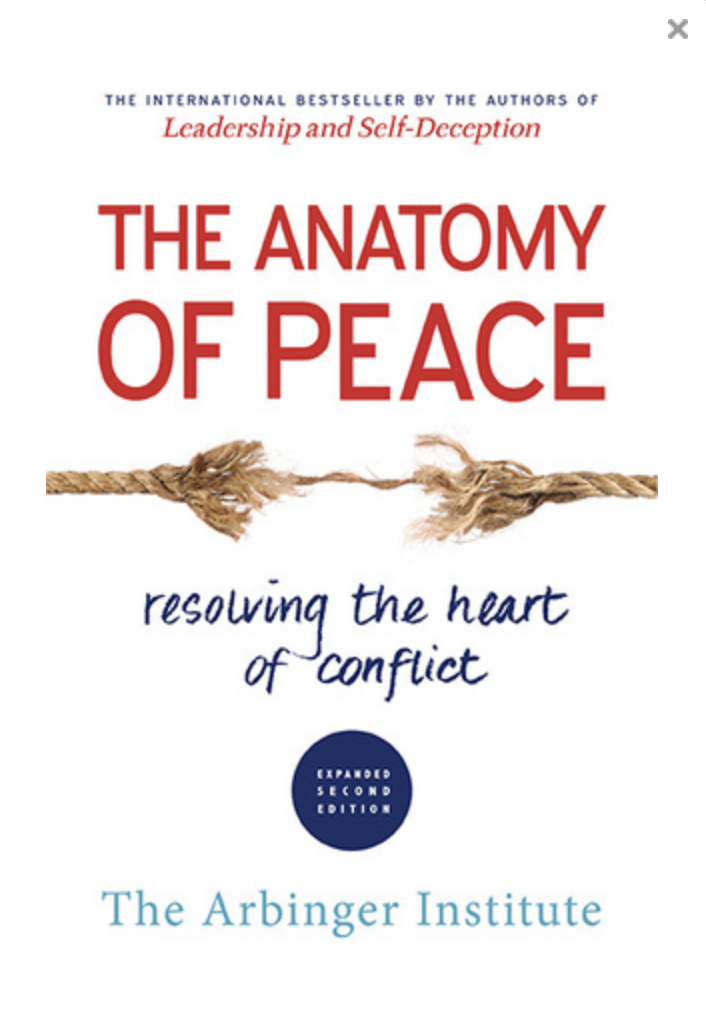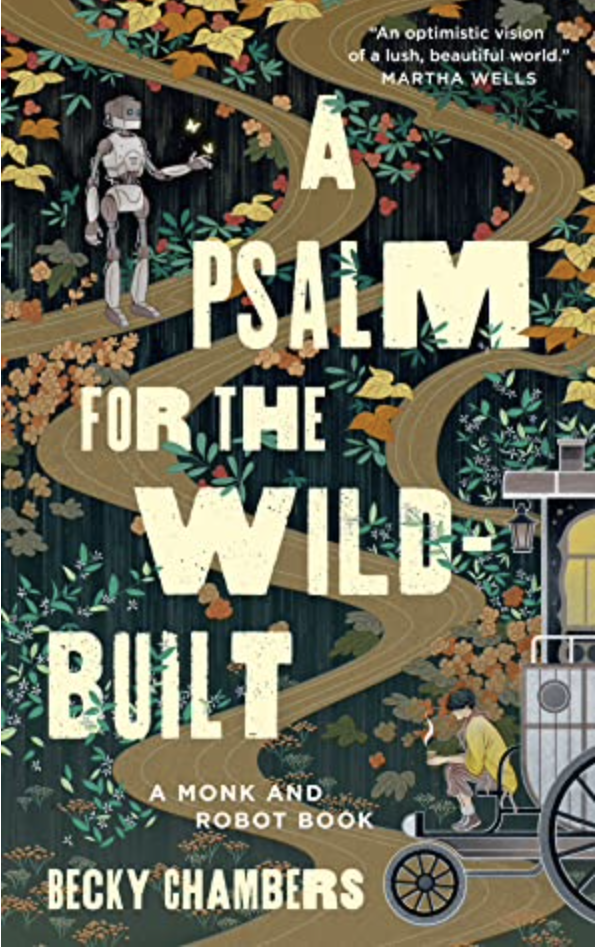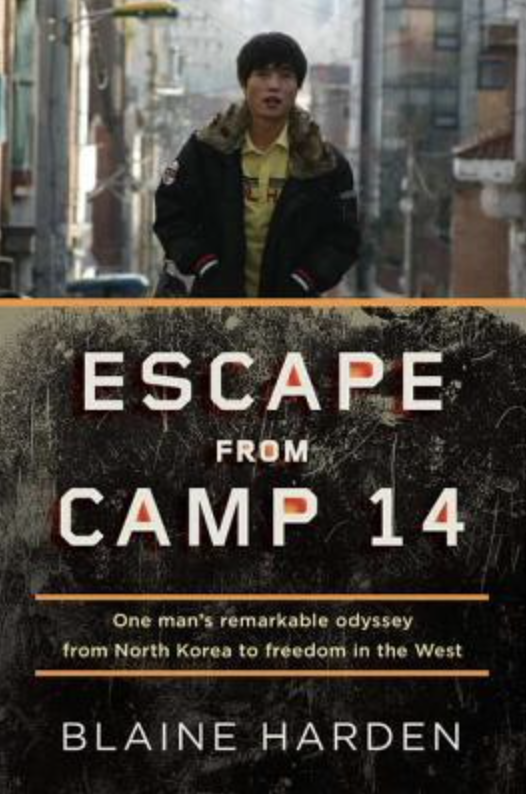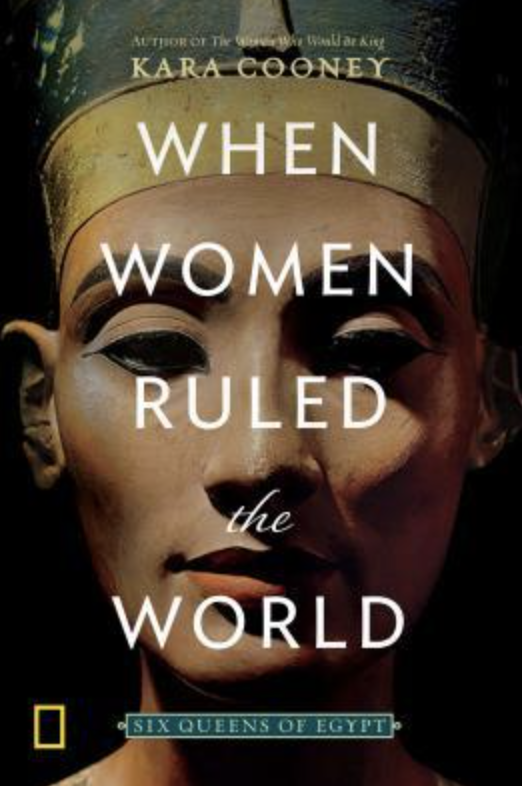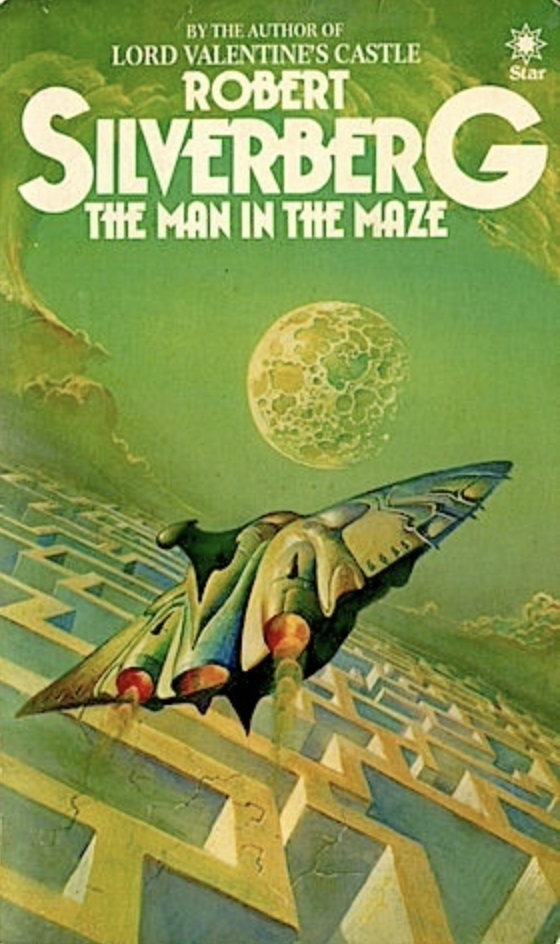The Anatomy of Peace
By: The Arbinger Institute
I got drawn into the narrative of this book, not really expecting one. Then I realized as much. I think narrative works as a device here. It humanizes the concepts the writers are trying to get across. Furthermore, it is quite likely there is a good amount of truth or wholly true vignettes within the book. Either way, the information presented therein, is useful. The biggest take-away for me was a reaffirmation of a heart-at-peace and what that can do in one’s life compared to having a heart-at-war. There are free resources you can check out that will give you a summary and some visuals to work with whether or not you want to read the book. You can FIND THEM HERE.
A Psalm For the Wild-Built
By: Becky Chambers
This came as a recommendation. In the end, I liked it. To me the last third of the book was much stronger than the first two. Am I used to excruciating detail? Yes. Am I used to tomes that are 5x longer than this book? Yes. So perhaps you can chalk it up to those things, but I thought the world-building and characterization were lacking until Dex and Mosscap meet up. Once they do, their dialog fleshes the world out much better. I like Dex as a character but found Mosscap far more relatable.
Right on the cover the book is billed as “optimistic” and that is very true. I didn’t find it to be very believable but it was an enjoyable, short read that raises some good/timely questions about the nature of consciousness and AI.
The Freeze-Frame Revolution
By: Peter Watts
This book was narrated on Audible by Emily Zeller Woo and I really like her as a narrator. This was a book with a fascinating premise that didn’t really live up to how good it probably could have been. The formatting was herky-jerky. It was intentionally so as a device but for me more than anything it took me out of connecting with the characters. Critiques aside, I like the treatment of AI in this book and how its relation to the humans renders the narrators viewpoint a little unreliable. If I were to give this a grade it would be a C. From what I understand this is considered a novella and resides in a larger universe of books. But IRL its billed as a stand-alone and it was only through investigating into the author’s fandom that I discovered how it connects into other works. As a stand-alone book, there was a lot of characterization lacking. As a premise it was interesting. As a casual read, I would not encourage anyone to read this who doesn’t really love hard sci-fi.
Escape form Camp 14
By: Blaine Harden
Honestly so crazy. So far I’ve read a fair amount of historical fiction about revolution-era China, one memoir about the work camps in the Gobi and I read The Girl With Seven Names. So I am not at all ignorant of what was to come in this book. Nonetheless, it was terrible in a “can’t look away” kind of way. The book ends on a positive note. I have not followed up to see where Shin is and what he is doing these days but I sincerely hope the agency he was stepping into near the end of this narrative has continued and so has his healing. Woof. The info is delivered in a way that doesn't overly sensationalize things but its still hard to face what human beings are capable of doing to one another.
Never Never
By: Brianna Shrum
:-( This book kinda made me sad. Why? It more-or-less solidified for me the idea that Peter Pan was sociopathic. Obviously we are talking about a fictional character that has been further fictionalized from canon. I get that. Peter being a total jerk doesn't make me sad though. It’s how he treats the other people in the story that, when viewed in light of him being abusive, makes me sad. Captain Hook is tragic AF in this version. He is also thoroughly likable and a wonderful character around which to re-imagine the story. As far as alternate tellings go, this was very well done. Note, Vor really liked this book but there are some marginally sexual scenes that you might want to skip over for kids. Where this work was supposed to fall in terms of age recommendation I would have a hard time saying. A bit too mature for 5 but otherwise fine for younger readers except skewing oddly YA here and there regarding Hook + Tiger Lily.
When Women Ruled the World
By: Kara Cooney
A great historical book. Now, not everything presented is undisputed fact. So, don’t think of it that way. There are many things about ancient Egypt that we just don’t know with certainty so there is still a good bit of speculation from the author. That being said, she is an expert in the field of Egyptology and a good writer. It is quite easy to relax and let her spin you a tale of each of these queens with enough supporting evidence to feel historically valid and interesting as a narrative. Well done. Definitely recommend.
The Man in the Maze
By: Robert Silverberg
This was enjoyable antique sci-fi novel. As many of them are, this was very male-centric, so there’s that. On the other hand, there were few characters, overall. So, the paucity of women is not as egregious as say in Foundation. I thought the premise was fascinating. The world-building was definitely up to snuff. Furthermore, the various ups and downs of tension were satisfying and kept me engaged. Worth a read.
A Portrait of the Artist as a Young Man
By: James Joyce
Once I got used to the style of writing and felt confident that I was following along the beats of action, I really liked this book. I read both Angela’s Ashes and ‘Tis by Frank McCourt many years ago. APof left me with a similar feeling. Apparently, that makes sense. Why? Joyce’s book pre-dates McCourt’s novels. According to a quick and dirty internet search using just the two author’s names, my take-away is commonplace. Additionally, there are certain scholars of Irish literature who accuse McCourt of “performative Irishness” based on wanting to adhere to how Joyce wrote about the culture. I took the author of the above critique to be a little off-the-mark, personally. Frank McCourt IS kinda a performer as well as an author. He narrated Angela’s Ashes and ‘Tis for Audible and compared to reading the book, it was a transformative experience. He was, at very least, gifted in that manner of performance. So to me, to say his books were a performance is just obvious. Anyway, I liked this book a lot and have read nothing else by Joyce so perhaps upon reading some of his other work I will circle back and have more to say.
The Face of Battle
By: John Keegan
I just scanned through from the top of the this book list and, yes, you are correct my selection this month was all over the place. Aquarius. Gotta keep you guessing. What possessed me to read on this topic? Secret project, so, nunya 😏. It almost seems in vain to write anything about this book because I’m sure there is a very small readership of my blog and I can’t imagine any of you taking this book on. HOWEVER, in the event someone is interested here’s my take. Skip the first three chapters and go right into the Battle of Agincourt. I was intensely interested in the first three chapters but even still they were so dense that I will have to go back and re-read them. They are also deceptive and made me think the book was not about the topic as billed. But once you’re into the battles, the book delivers on its promises. Excellent if you’re into this kind of thing.

